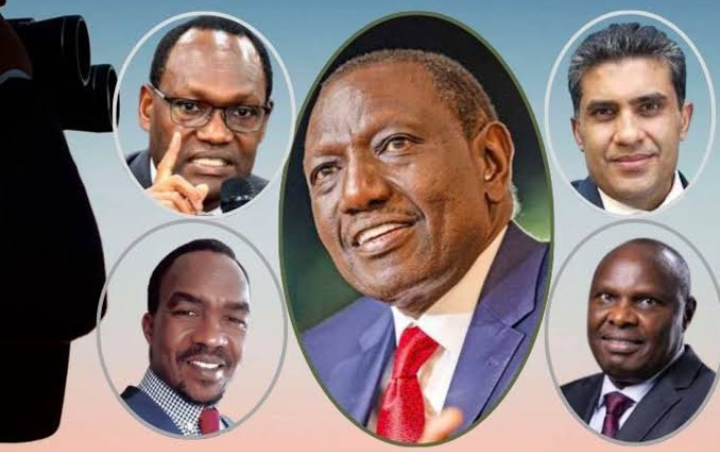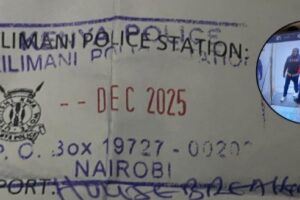A fresh legal storm is brewing in Kenya, with prominent figures in President William Ruto’s administration facing allegations of misconduct tied to classified surveillance technology.
Among those implicated are National Treasury Cabinet Secretary Chris Kiptoo, Head of Public Service Felix Koskei, and Eric Ngono, the President’s speechwriter.
Adding complexity to the case is the involvement of entrepreneur Jayesh Saini, a significant player in Kenya’s private health sector.
The accusations center on the unauthorized use of classified spying software, raising serious concerns about privacy violations, ethical lapses, and abuse of power.
The allegations, though yet to be substantiated by publicly available legal documents, shine a spotlight on growing concerns about governance under the Ruto administration.
Critics have already accused the government of undermining civil liberties and employing oppressive measures to quash dissent.
Notable instances include the controversial handling of protests against the Finance Bill 2024, where demonstrators decrying the economic burden of new tax policies were met with a heavy security crackdown.
The alleged use of classified surveillance tools brings a new dimension to the administration’s challenges.
Such tools are often employed for national security purposes, but the lack of regulatory clarity on their use creates room for misuse.
Observers fear these technologies could be deployed against political opponents, activists, and whistleblowers, effectively silencing dissent under the guise of safeguarding national interests.
Entrepreneur Jayesh Saini’s inclusion in the allegations adds intrigue to the case.
Known for his ventures in Kenya’s healthcare industry, Saini’s involvement raises questions about the intersection of private sector influence and state activities.
His major business footprint makes the allegations particularly controversial, as they could point to a broader pattern of collusion between public officials and private entities to advance personal agendas.
This legal development also aligns with wider concerns about corruption and ethical lapses in Kenya’s governance structures.
International groups like Anonymous have previously criticized the government for perceived exploitative policies, threatening to expose instances of corruption.
Such sentiments amplify calls for transparency and accountability, particularly regarding the deployment of digital tools in public administration.
The case underscores the urgent need for legal reforms to regulate the use of surveillance technology.
Without clear guidelines, the line between legitimate national security efforts and privacy violations remains dangerously blurred.
Human rights advocates argue that unchecked access to such tools not only jeopardizes individual freedoms but also erodes public trust in government institutions.
As investigations progress, the lawsuit is expected to ignite intense debates about civil liberties and governance in Kenya.
Public interest in the case is likely to mount, with citizens demanding answers and tangible reforms.
Ultimately, the outcome of this legal battle could significantly shape the narrative around President Ruto’s administration and its commitment to ethical governance.





















Add Comment